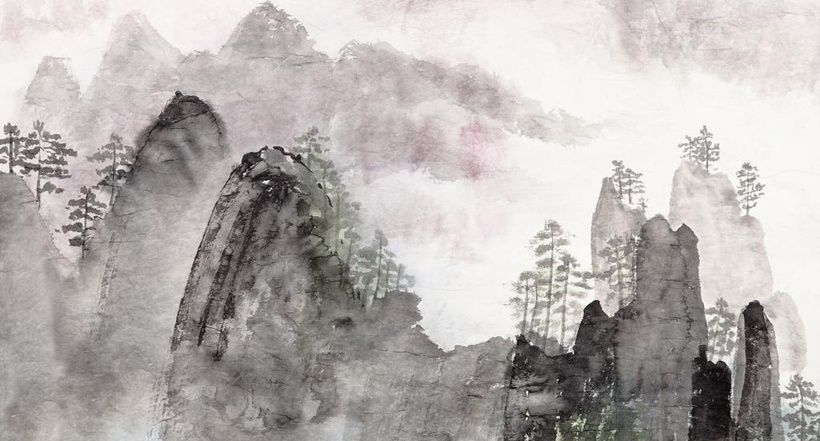Sitting, Looking for the Time When the Clouds Arise

Below you'll find my translation of a classic Chinese poem by Wang Wei (701-761), "Zhongnan's Exceptional Karma." The poem contains these often quoted lines, even today:
"Going to the water’s source/Sitting, looking for the time when the clouds arise."
Wang Wei had been a government official, but when his wife and daughter died, he became a wandering practitioner and poet. Despite the tragedies in his life, he found peace, as is expressed simply in the poem by the line "Joy comes."
In the title of the poem, "Zhongnan's Exceptional Karma," Zhongnan refers to Mt. Zhongnan which is sometimes called by the abbreviation "Nanshan" (South Mountain), as it appears later in this poem. Zhongnan is a mountain range that has been known from ancient times as a retreat from the city for poets, writers, and others. It became a center of literary culture in the Tang Dynasty, as well as for Buddhist and Daoist religious activity.
What I've translated below as "source" in the line "Going to the water’s source" is 窮處, meaning, "to dwell in concealment in the wilds, avoiding service to the realm."
Zhōngnán's Exceptional Karma
by Wang Wei
In my middle years
I was much inclined toward the Way
Now my twilight years at home
Near South Mountain
Joy comes
Content with going on alone
Excellent circumstances
For knowing this empty self
Going to
the water’s source
Sitting, looking
for the time when the clouds arise
Occasionally I
happen upon the old person of the forest
We talk and laugh
Meeting without limits